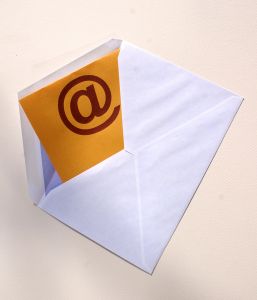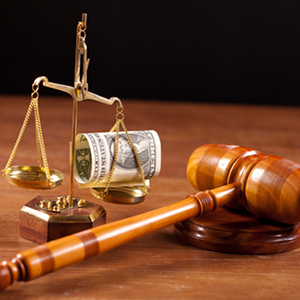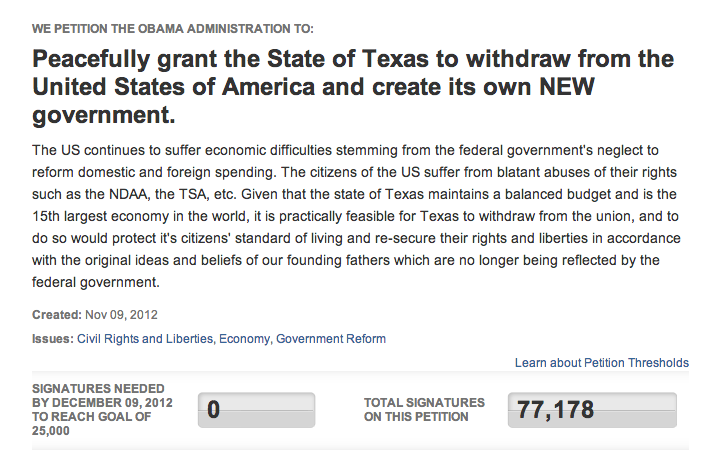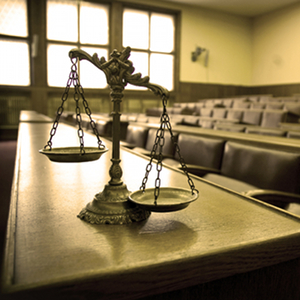 Check out the latest crop of featured cases from Justia’s Dockets.
Check out the latest crop of featured cases from Justia’s Dockets.
Hank Azaria v. Craig Bierko et al., (US District Court, C.D. California)
Actor Hank Azaria, well-known for his voice actor roles in “The Simpsons” television show, filed a copyright lawsuit seeking declaratory relief against actor Craig Bierko in a dispute over the voice and other rights of ‘Jim Brockmire,’ a baseball announcer character.
Hank Azaria Sues Over a Character Voice, E.W.com (11/16/12)
The People of the State of California v. eBay, Inc., (US District Court, N.D. California)
United States of America v. eBay, Inc., (US District Court, N.D. California)
The U.S. Department of Justice filed this antitrust lawsuit against eBay because of its an agreement between the online marketplace company and Intuit, a software company that develops financial and tax preparation software. The non-competition agreement between the two companies prohibits either from hiring employees from the other company. The two companies otherwise compete directly for highly specialized computer engineers and research scientists. California Attorney General Kamala Harris filed a lawsuit against both companies under California law, citing the state’s stricter restrictions against anticompetitive behavior.
eBay, Intuit Signed Noncompetitive Agreement, Government Alleges, The Huffington Post (11/16/12)
Chicago Board Options Exchange, Incorporated v. International Securities Exchange, LLC (US District Court, N.D. Illinois)
The Chicago Board Options Exchange filed a $525 million dollar patent infringement lawsuit against a competing options exchange, International Securities Exchange, alleging that three of its Quote Risk Monitor patents are being infringed.
CBOE Sues International Securities Exchange Over Patents, Bloomberg BusinessWeek (11/13/12)

 On Friday, a California company called Innovative Automation LLC
On Friday, a California company called Innovative Automation LLC  Yesterday, Google was named in a
Yesterday, Google was named in a  Defense attorneys for Facebook and founder Mark Zuckerberg won’t oppose attorney Dean Boland’s
Defense attorneys for Facebook and founder Mark Zuckerberg won’t oppose attorney Dean Boland’s  I’m sure most of our readers are familiar with
I’m sure most of our readers are familiar with 

 Yesterday, on November 12, 2012, Texas company NovelPoint Tracking LLC filed a lawsuit against Apple Inc. for patent infringement. Brought in the U.S. District Court for the Eastern District of Texas, the suit alleges that certain Apple products, and specifically the iPhone 4S, infringe on a patent owned by the plaintiff.
Yesterday, on November 12, 2012, Texas company NovelPoint Tracking LLC filed a lawsuit against Apple Inc. for patent infringement. Brought in the U.S. District Court for the Eastern District of Texas, the suit alleges that certain Apple products, and specifically the iPhone 4S, infringe on a patent owned by the plaintiff. Dawson Farms challenged the RMA’s denial of its crop-insurance claim alleging loss due to “tuber rot” in stored potatoes. A final agency review affirmed the RMA’s denial of Dawson Farms’ claim, finding that the insurance adjuster’s sampling of the stored potatoes followed adequate sample procedures. Dawson Farms appealed the final agency decision to the district court, which affirmed. The court believed that, in light of the nature of the hearing officer’s finding under review, the deputy director’s statements made it reasonably discernable that the deputy director applied the correct legal standard and considered the record for the proper purpose of reviewing the hearing officer’s decision for substantial evidence. The hearing officer based his conclusion largely on the testimony of an expert in potato pathology. The court also believed that, to the extent the deputy director’s determination was a rejection of the hearing officer’s finding that the adjuster had a duty to re-sample, the issue under review was a question of law. Consequently, the court found no abuse of discretion or arbitrary and capricious action by the deputy director. Further, the agency determination was supported by substantial evidence.
Dawson Farms challenged the RMA’s denial of its crop-insurance claim alleging loss due to “tuber rot” in stored potatoes. A final agency review affirmed the RMA’s denial of Dawson Farms’ claim, finding that the insurance adjuster’s sampling of the stored potatoes followed adequate sample procedures. Dawson Farms appealed the final agency decision to the district court, which affirmed. The court believed that, in light of the nature of the hearing officer’s finding under review, the deputy director’s statements made it reasonably discernable that the deputy director applied the correct legal standard and considered the record for the proper purpose of reviewing the hearing officer’s decision for substantial evidence. The hearing officer based his conclusion largely on the testimony of an expert in potato pathology. The court also believed that, to the extent the deputy director’s determination was a rejection of the hearing officer’s finding that the adjuster had a duty to re-sample, the issue under review was a question of law. Consequently, the court found no abuse of discretion or arbitrary and capricious action by the deputy director. Further, the agency determination was supported by substantial evidence. Apple must pay more than $368 million in damages to VirnetX Inc. according to a jury verdict returned in federal court yesterday (see it below). The same day the verdict was reached, VirnetX and Science Applications International Corporation
Apple must pay more than $368 million in damages to VirnetX Inc. according to a jury verdict returned in federal court yesterday (see it below). The same day the verdict was reached, VirnetX and Science Applications International Corporation